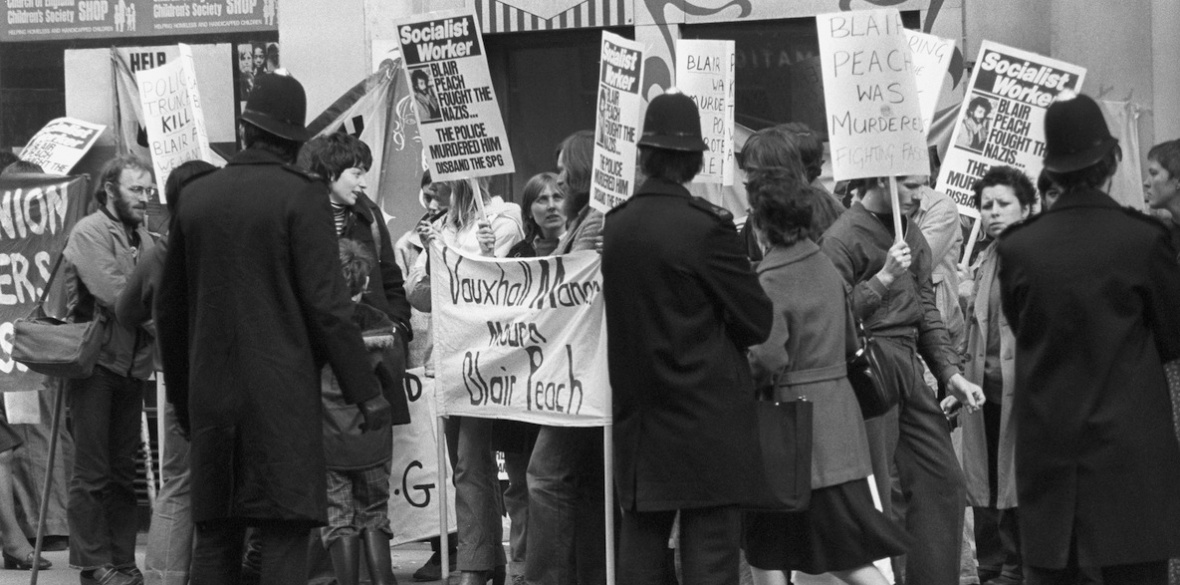This is the last article you can read this month
You can read more article this month
You can read more articles this month
Sorry your limit is up for this month
Reset on:
Please help support the Morning Star by subscribing here
A SENIOR police manager responsible for supervising at least four undercover officers who stole the identities of dead children claimed yesterday that he was unaware of the practice being used.
Derek Brice was one of the early managers of the Special Demonstration Squad (SDS), a secret Metropolitan Police unit formed in 1968 that infiltrated largely left-wing protest groups.
Dozens of officers serving in the unit appropriated the identities of dead children to shore up their cover identities, applying for passports and other documents under the assumed name.
The morbid tactic was described as the “prevailing practice” in the unit at the time Mr Brice supervised officers between 1973 and 1974. He also served as the unit’s acting head when the chief inspector was absent.
However, giving evidence to the Undercover Policing Inquiry yesterday, Mr Brice said that he had no knowledge of the tactic being used while he was in charge, insisting that he “certainly did not” instruct officers to steal dead children’s identities.
One of the key tasks of the public inquiry, chaired by retired judge Sir John Mitting, is to investigate the origins of the tactic.
Another spycop boss, David Bicknell, who was above Mr Brice in the unit, said in a witness statement to independent investigators during a 2015 review that the tactic was a “practical solution to the problem which we faced in creating plausible identities.”
When questioned on whether Mr Bicknell had ever discussed this with him, Mr Brice insisted that he had not.
The elderly former officer, who gave evidence via video link, also remained tight-lipped over any knowledge of officers forming relationships with activists while undercover.
All police chiefs giving evidence to the public inquiry have denied knowledge that officers were sleeping with their targets.
One of the officers under Mr Brice’s supervision was Richard Clark, who slept with several activists during his deployment and has been described by former colleagues as a “womaniser” and “carnivore.”
When asked about Mr Clark’s reputation, Mr Brice told the inquiry that he did not recall the officer, who is now deceased, serving in the SDS.
He told the inquiry that he did not appreciate during his tenure that there was a risk of officers forming sexual relationships with activists, adding: “How would I have known anyway?”
Pressed on whether there should have been more measures to prevent officers engaging in such behaviour, Mr Brice said that the decision to mainly recruit married officers to the SDS was the “best we could do at that time.”
The inquiry continues.

 Bethany Rielly
Bethany Rielly









